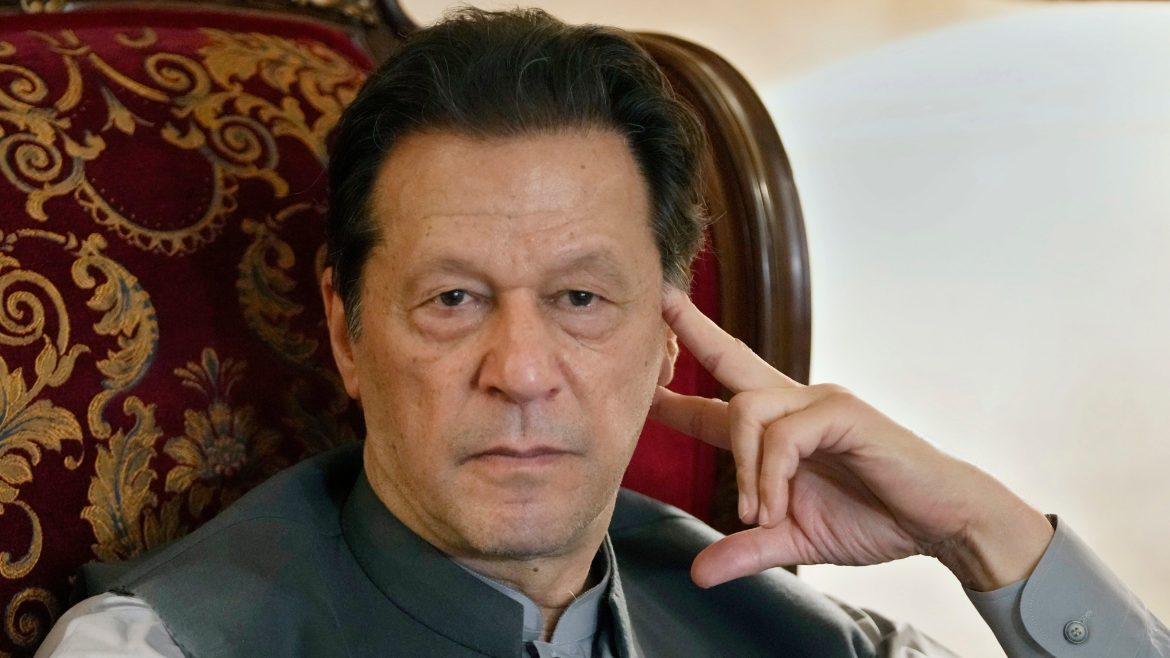Petition Filed Over Health Fears
A petition has been submitted in a Rawalpindi anti-terrorism court seeking the formation of a medical board to conduct a thorough health examination of former Pakistani Prime Minister and Pakistan Tehreek-e-Insaf (PTI) founder, Imran Khan.
The request was filed on behalf of Khan’s sister, Aleema Khan, through lawyers Faisal Malik, Khalid Yousaf Chaudhry, and Tabish Farooq.
The petition expresses concern over the 73-year-old politician’s health, particularly his eyesight, which has reportedly worsened in prison.
Complaints of Vision Problems
According to the petition, during a recent prison meeting, Khan complained of significant pressure in his eyes and blurred vision. His lawyers noted that the former cricket star has been incarcerated for more than two years and has not received a detailed medical examination since 4 November 2024.
Despite several formal requests, the petition claims, prison authorities have not conducted a comprehensive check-up since that date.
Demand for Independent Doctors
Aleema Khan raised doubts about the neutrality of government-appointed doctors. She urged the court to allow Khan’s personal physicians to be part of the proposed medical board.
Two names were suggested: Dr Faisal Sultan, a senior physician associated with Shaukat Khanum Memorial Cancer Hospital — a facility founded by Imran Khan himself — and Professor Fawad Ahmed Khan from Rawalpindi Medical University.
The petition argues that Khan is being denied basic rights as a prisoner, including timely medical care. It also alleges that he has repeatedly been subjected to solitary confinement, which, according to international human rights standards, can pose serious mental and physical health risks.
Court Proceedings
The case was heard by Judge Amjad Ali Shah of the anti-terrorism court in Rawalpindi. Lawyers Faisal Malik, Khalid Yousaf Chaudhry, and Tabish Farooq appeared on Khan’s behalf.
The court has issued notices to the prosecution and sought a formal response from the superintendent of Adiala Jail, where Khan is currently held. The next hearing has been scheduled for 29 August.
Wider Political Context
Imran Khan, once celebrated as the captain who led Pakistan to its only Cricket World Cup victory in 1992, remains one of the country’s most influential political figures. His ouster from power in April 2022 through a parliamentary no-confidence vote marked a turning point in Pakistan’s political crisis.
Since then, Khan has faced a series of legal battles, ranging from corruption allegations to terrorism-related charges. His party, PTI, has frequently argued that these cases are politically motivated, aimed at sidelining him from politics ahead of the next general elections.
Currently serving multiple prison sentences, Khan has been largely absent from Pakistan’s political stage, though his supporters continue to stage rallies and social media campaigns demanding his release.
Health and Human Rights Concerns
The call for an independent medical board reflects growing concerns about prisoner welfare and transparency in Pakistan’s legal system. Rights organizations have repeatedly stressed the need for fair treatment of detainees, particularly high-profile political prisoners.
According to Amnesty International, prolonged solitary confinement can amount to cruel, inhuman, or degrading treatment. Pakistani legal experts note that under prison rules, inmates are entitled to regular medical check-ups and can request treatment from external specialists if required.
If granted, the inclusion of Khan’s personal doctors in the medical board could mark a significant development in ensuring both transparency and trust in the process.
Next Steps
As the case heads back to court on 29 August, all eyes will be on whether the judiciary instructs the formation of an independent medical board. The outcome could influence not only Khan’s personal wellbeing but also the broader debate on prisoners’ rights and the politicization of Pakistan’s justice system.
For now, Khan’s family and supporters remain vocal, insisting that the government must guarantee his basic rights — including proper medical treatment — while he remains behind bars.















